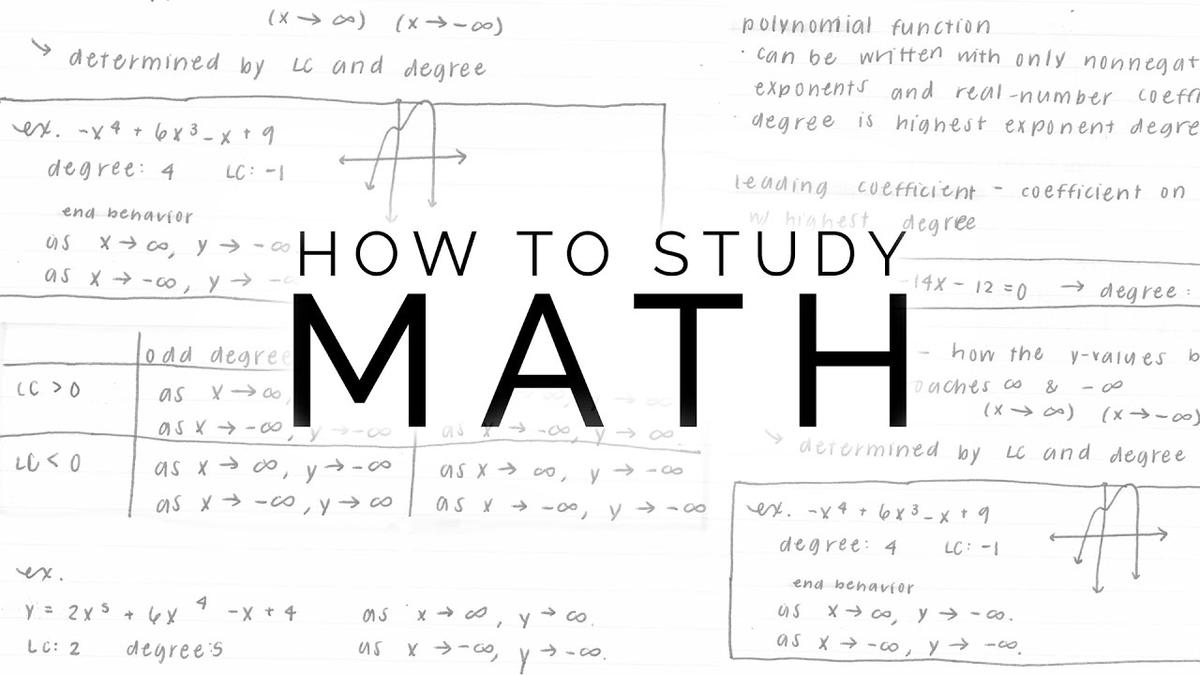Mathematics

Study Techniques for Mathematics
We know that students need to do it, but some students have trouble making it a HABIT. Students may forget, become distracted or just don’t want to study at all.
Understanding what a habit is, and how it forms can help students figure out how to study for Maths on a daily basis.
The Habit Loop
A habit is a behaviour that we do regularly or routinely. Research shows habits have a loop; cue, routine, reward.
A simple example of a habit loop is ‘eating a snack after school’
Cue - Students start to feel hungry when the school day ends (same time each day)
Routine - Students eat at the same time when they get home from school
Reward - The snack tastes great and the hunger goes away
This reinforces the habit and makes us want to repeat the loop again for the next day.
Here are the things we need to make a studying loop:
- A set time to study every day.
- A cue to start studying.
- An environment that helps us stick to our studying routine.
- A reward for studying.
Setting a Time
When we do things at the same time every day, it is easier to remember to do them.
At Mater Dei Catholic College, in Mathematics we recommend that students in Years 7 to 10 spend anywhere up to one hour of study per night. This increases to up to 2 hours per night in Stage 6, noting that this is inclusive of study for all KLA’s.
Ideally, choose a single block of time during the afternoon or evening when you will have the right amount of time to study every day.
The Cue
Studying at the same time every day is one cue, but you may need something more concrete when first forming your habit.
This can be a calendar reminder you set on your phone or laptop, or something as simple as a card with the word “study” printed on the front.
Your Study Environment
To help students study, they need a place set up for work and not for doing other things. Do not study on your bed – that’s for sleeping – or in front of the television. Best option: a table or desk with good lighting.
Your study place should limit distractions. Research repeatedly has shown the human brain cannot multitask well; people make more mistakes if they try to do two things at the same time, especially when one of those things requires concentration.
The Reward
That said, after you finish studying, you can give yourself a little gaming or social media time as your reward.
With time, the studying itself will become its own reward. Improving your knowledge and skills will give you a sense of achievement and make you more confident and happier at school. But while forming your study habit, a really fun reward will help you stick with it.
How Long It Takes
The amount of time it takes to make studying a daily habit can be anywhere from 21 days to a few months, depending upon the person.
To help you stay with it, find a study buddy to form the habit along with you. Ask your family not to interrupt you during study time. And consider using apps to set goals and track your study time so you can watch your habit form and celebrate your progress.
THE GOOD NEWS: DAILY STUDYING GETS EASIER THE MORE YOU DO IT |
Building these habits early is important. What we tend to do is try to leave these habits until we get into senior studies. The truth is that by then it may be too late.
Research states that study techniques and habits are best developed early, and this is why it is important to have those conversations with our children and help them to set up good study routines.
Another important rule that I like to use with studying and setting up study routines is that starting small and working from there is not a bad idea either.
Mr Kurt McPherson | Mathematics KLA Leader





